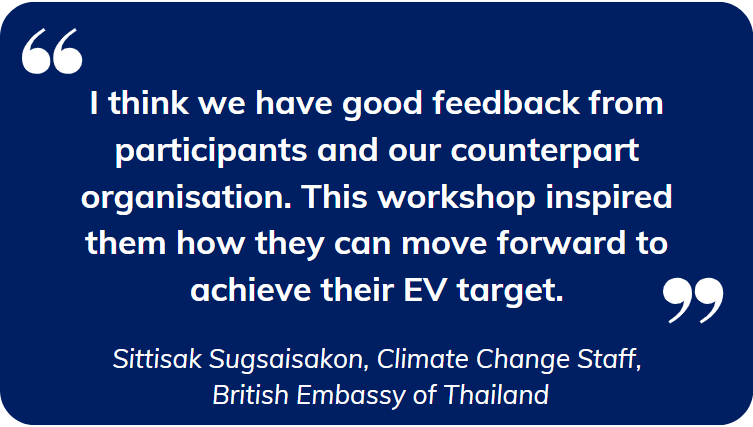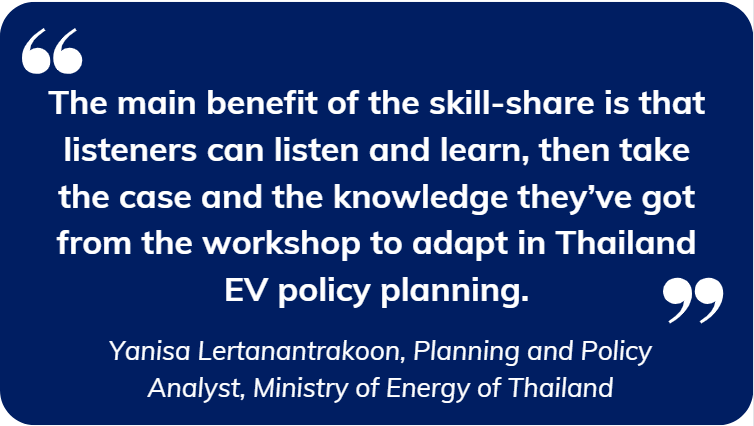


|
Country: Thailand |
| Sector: Mobility |
|
Expert partners: CENEX, E Co. and Crown Agents Ltd |
Sharing lessons from the UK’s experience of electric vehicle (EV) policy development and impact assessments to support implementation of EV policy in Thailand.
To help them achieve their electric vehicle ambitions, Thailand’s Ministry of Energy were looking to develop and strengthen the case for Thailand to adopt an electric vehicle (EV) policy. To support this, UK PACT hosted an initial workshop between senior Thai government officials and experts from E Co., a London based climate finance and development consultancy, and the Office of Zero Emission Vehicles (part of the UK’s Department for Transport and Department for Business, Energy & Industrial Strategy). The workshop covered UK EV policy, policy formulation and tax incentives used to promote the adoption of EVs.
During the workshop, Thai policy makers expressed concerns about impacts on the electricity grid from increased EV usage and how moving away from biofuels may impact farmers. Following the success of the first skill-share, UK PACT delivered a second workshop 6 months later focussing on these concerns.
Working with officials from Thailand’s Ministry of Energy, experts from CENEX and Crown Agents Ltd developed recommendations to help the ministry conduct a comprehensive policy review of the impacts of introducing EVs. Participants looked at examples of policy implementation in Central America, as well as impact assessment tools and highlighting perspectives of EV charging system implementation.



.png?width=500&height=500&name=Thailand%20%E2%80%94%20SS%26S%20(2).png)

UK PACT (Partnering for Accelerated Climate Transitions) is a unique capacity-building programme. Jointly governed and funded by the UK Government’s Foreign, Commonwealth and Development Office (FCDO) and the Department for Energy Security and Net Zero (DESNZ) through the UK's International Climate Finance, it works in partnership with countries with high emissions reduction potential to support them to implement and increase their ambitions for tackling climate change.
© Copyright 2025 UK PACT Privacy Notice Cookie Policy